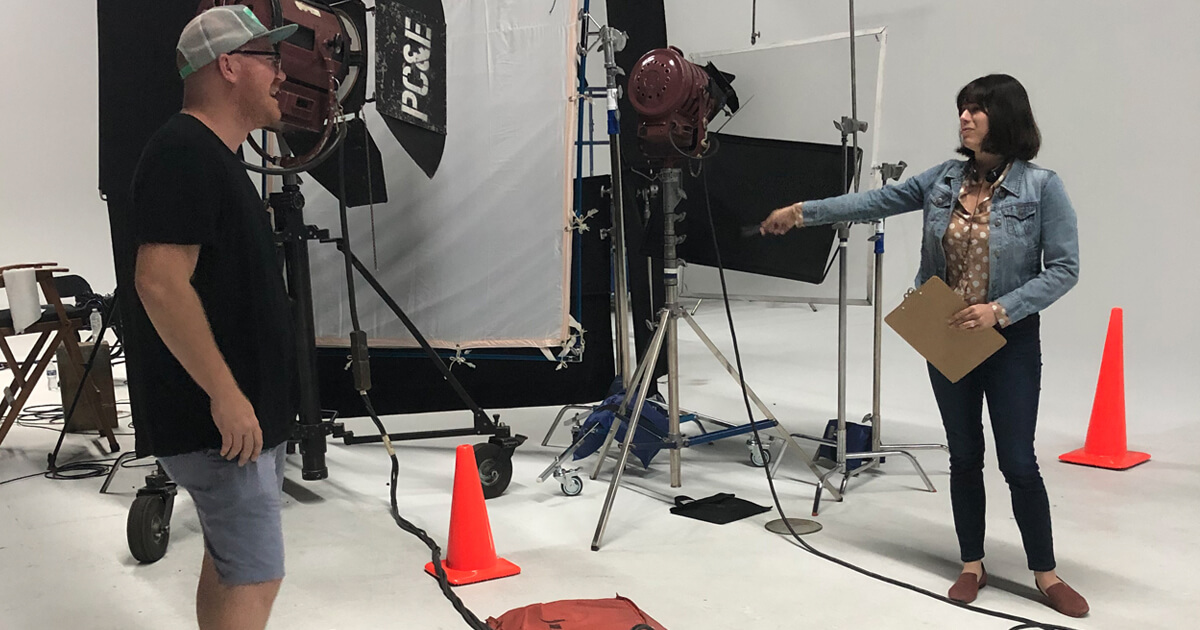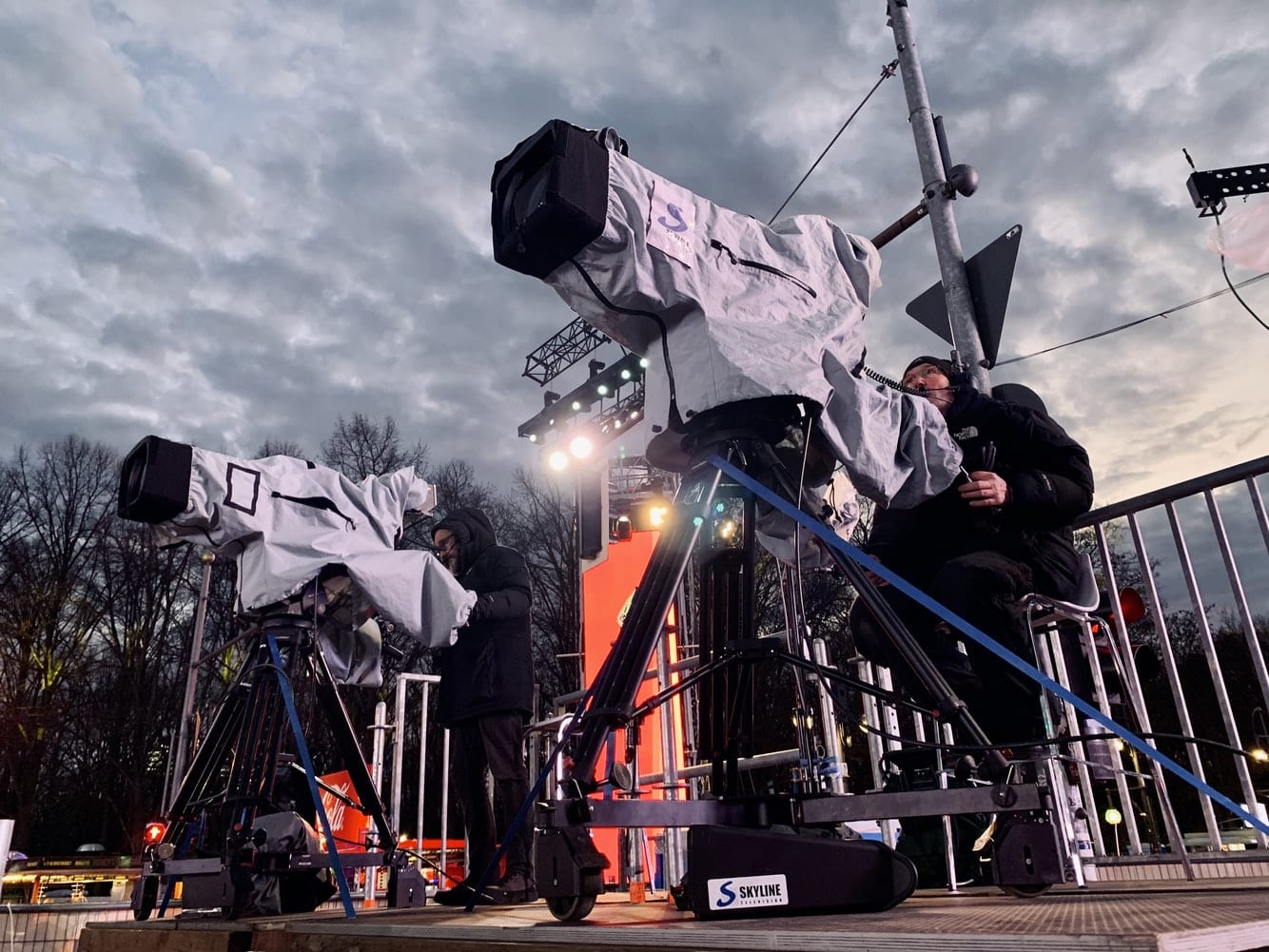How event production charlotte uses creative design to boost engagement
Wiki Article
Just How Event Production Works: A Comprehensive Consider the Process
Event production is a complex and structured process that needs mindful preparation and implementation. It begins with developing clear purposes and understanding the target audience. Each step, from budgeting to place selection, plays a vital duty in making certain success. As the procedure unravels, numerous components have to line up seamlessly. The nuances of this detailed procedure often go unnoticed. What are the essential phases that contribute to an unforgettable event?
The Initial Preparation Stage
When beginning on event production, cautious planning is vital to guarantee an effective end result. The first preparation stage functions as the structure for all subsequent initiatives. Throughout this stage, event producers need to define the event's objective and purposes clearly. Identifying the target audience assists customize the experience and messaging, ensuring relevance and engagement.Producers need to also think about the event format, whether it be in-person, digital, or hybrid, as this will certainly affect numerous logistical components. Picking a suitable date and venue is essential, as it influences accessibility and availability.Furthermore, putting together a dependable team is essential for dividing duties and improving communication. Establishing a timeline with turning points guarantees all tasks are completed on timetable. This phase includes thorough study, including identifying potential difficulties and designing approaches to mitigate risks. Ultimately, a well-structured initial planning stage establishes the tone for an effective event production journey.
Budgeting and Resource Allotment
In event production, effective budgeting and resource appropriation are critical for success - event production charlotte. Developing economic parameters sets the foundation for all subsequent choices, while resource circulation techniques assure that every part of the event is effectively sustained. With each other, these components help keep control over expenses and maximize using available resourcesEstablishing Financial Parameters
Developing financial specifications is vital to the success of any event production, as it establishes the foundation for reliable budgeting and resource allocation. This procedure starts with defining the total budget, which incorporates all aspects of the event, consisting of venue prices, event catering, and advertising and marketing. By recognizing readily available funds, event planners can focus on expenditures and designate resources as necessary. Furthermore, it is essential to perform detailed marketing research to prepare for prospective prices and determine financing sources, such as sponsorships or ticket sales. Establishing clear monetary parameters additionally aids in danger management, enabling coordinators to set aside backup funds for unexpected costs. Eventually, a well-defined spending plan works as a roadmap, leading the event production group in the direction of achieving their goals while maintaining financial control.Source Circulation Strategies
Reliable resource distribution strategies are necessary for taking full advantage of the effect of an occasion while sticking to budget restraints. Successful event production requires a careful strategy to budgeting and resource allowance. Organizers must focus on vital components such as place, food catering, and technology, making certain that funds are designated to locations that improve attendee experience. A detailed budget plan should lay out anticipated expenses and identify locations for potential price savings, such as discussing with vendors or checking out sponsorship possibilities. Furthermore, tracking expenses throughout the preparation process aids avoid overspending. By employing calculated source circulation, event producers can deliver a memorable experience while keeping monetary duty, inevitably adding to the overall success of the event.Place Choice and Logistics
Picking the right venue is necessary to the success of any kind of event, as it sets the phase for the general experience. Venue choice entails examining different variables, consisting of capacity, ease of access, and place. Organizers must think about the target audience and the nature of the event, ensuring the location straightens with the event's goals.Logistics play a considerable role in this process, involving setups for seating, audiovisual equipment, and catering solutions. An appropriate place should facilitate smooth flow for participants and team, boosting engagement.Additionally, evaluating potential places for features like vehicle parking, washrooms, and fire escape is essential for safety and security and benefit. The timeline for safeguarding the location is additionally crucial, as prominent places may schedule quickly - event production charlotte. As a result, comprehensive planning and timely implementation can eventually add to a smooth event experience, making location choice and logistics basic components of successful event production
Creative Principle Advancement
While the venue establishes the physical phase, creative idea growth forms the event's identity and narrative. This procedure begins with recognizing the event's objective and target market, enabling event manufacturers to develop a compelling style that resonates with attendees. Conceptualizing sessions usually include diverse viewpoints, promoting innovative ideas that straighten with the event's goals.Once a style is established, visual elements such as shade schemes, signs, and design are developed to boost the overall environment. Storytelling strategies might likewise be integrated to create an interesting journey for individuals, guaranteeing a remarkable experience. In addition, factors to consider regarding amusement, activities, and interactive elements are straightened with the selected idea, strengthening the style throughout the event.Ultimately, effective innovative concept development warranties that every facet of the event works cohesively, leaving a lasting impression on participants and satisfying the event's purposes. This foundational work lays the groundwork for subsequent about his preparation and execution stages.Working together With Vendors and Providers
Effective event production depends upon effective collaboration with suppliers and vendors. Picking trusted partners, discussing contracts effectively, and making certain prompt shipments are critical action in this procedure. Each of these variables contributes significantly to the overall success and smooth implementation of an event.Selecting Reliable Partners
Just how can event planners guarantee a seamless production experience? Choosing dependable companions is important in attaining this objective. Event organizers need to conduct extensive research study to determine vendors and providers with a proven performance history of quality. This consists of checking referrals, evaluating portfolios, and assessing consumer feedback. Organizers need to prioritize companions that demonstrate expertise, prompt interaction, and a determination to collaborate. Structure solid partnerships cultivates trust fund and makes it possible for fast problem-solving during the event. Additionally, it is useful to choose regional vendors that understand the place and local logistics. Ultimately, an effective event rests on the harmony between organizers and their companions, making sure that every aspect of production runs efficiently and efficiently.Working Out Contracts Successfully
Reliable negotiation of contracts is an important action in the partnership in between event planners and their vendors and providers. This procedure includes clear communication of expectations, deliverables, and timelines. Coordinators should carry out detailed research study on market prices and market standards to establish a baseline for arrangements. It why not try this out is necessary to develop a joint ambience, encouraging open dialogue regarding terms, rates, and prospective backups. Coordinators need to likewise prioritize comprehending the supplier's capacities and restrictions to align their demands efficiently. Flexibility can cause mutually helpful contracts, cultivating long-term relationships. Crafting well-defined contracts that consist of specific performance metrics can aid assure responsibility, inevitably causing effective event execution and fulfillment for all parties entailed.Making Certain Timely Shipments
Prompt distributions are vital for the smooth implementation of any kind of event, calling for diligent cooperation between coordinators and their suppliers and distributors. Reliable communication is essential, as it aids establish clear expectations concerning shipment schedules, amounts, and details requirements. Organizers typically create comprehensive timelines to detail vital milestones, guaranteeing all parties continue to be straightened throughout the procedure. Routine check-ins with suppliers can assist determine prospective delays early, permitting for positive options. Additionally, constructing strong relationships with trustworthy distributors promotes trust and responsibility, which can cause far better solution and prioritization. By prioritizing these collaborative efforts, organizers can reduce interruptions, thereby improving the total effectiveness of event production and making certain that all essential products and services get here as planned.Advertising and Promo Techniques
While arranging an event, the success of advertising and marketing and promotion techniques can greatly affect participation and interaction. Efficient techniques commonly consist of a combination of electronic advertising, conventional marketing, and grassroots outreach. Making use of social media sites platforms allows for real-time communication and targeted marketing, reaching specific demographics successfully. Email marketing campaigns can further involve potential attendees with personalized web content and reminders.Collaborations with influencers or sector leaders can additionally boost trustworthiness and widen reach. Producing interesting material, such as videos or blog sites, aids to generate buzz and sustain passion leading up to the event. Furthermore, leveraging early-bird discount rates and unique rewards can incentivize ticket purchases.Promoting through conventional networks, such as posters or neighborhood media, remains appropriate, specifically in community-focused events. An extensive approach that incorporates multiple approaches assurances optimum visibility and involvement, ultimately contributing to look at this website the event's success and the creation of a memorable experience for participants.
On-Site Implementation and Administration
On-site execution and management are necessary parts that determine the general success of an event. Effective control throughout the event ensures that all aspects line up with the planned program. Event managers look after logistics, including supplier coordination, devices configuration, and visitor solutions. Checking timelines and dealing with any kind of unexpected issues are basic for maintaining a seamless experience.The team plays a significant role, as trained employees are accountable for various jobs such as enrollment, details circulation, and technological assistance. Interaction among staff member is necessary; it fosters a collaborative setting and allows quick resolution of challenges.Additionally, security methods have to be followed, protecting the well-being of all participants. Post-event examinations are likewise part of on-site administration, providing insights for future enhancements. By concentrating on these elements, event manufacturers can develop unforgettable experiences that meet or exceed attendee expectations while attaining the event's objectives.Often Asked Concerns
Just how Do I Choose the Right Event Motif?
Picking the ideal event style includes thinking about the target market, event objective, and location. Researching present trends and collecting input from stakeholders can also influence imaginative concepts that reverberate and produce a remarkable experience.
What Are Typical Blunders in Event Production?
Common mistakes in event production commonly consist of insufficient planning, inadequate interaction amongst employee, budget plan mismanagement, neglecting to take into consideration the audience's requirements, and stopping working to carry out an extensive post-event examination for future improvements.Exactly How Can I Determine Event Success?
To measure event success, one can evaluate participant contentment, engagement levels, spending plan adherence, and post-event comments. Secret efficiency indications, such as ticket sales and social media communications, likewise offer useful insights right into overall effectiveness.What Should I Do if It Moistens the Event Day?
In case of rainfall on the day, the coordinator should implement backup plans, such as securing camping tents or moving tasks inside your home. Communication with participants regarding modifications is important to assure a smooth experience regardless of climate obstacles.Just How Can I Make Certain Participant Interaction During the Event?

Report this wiki page